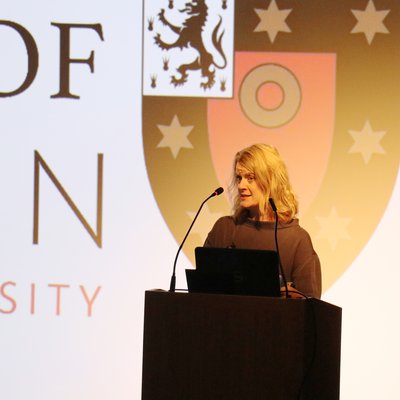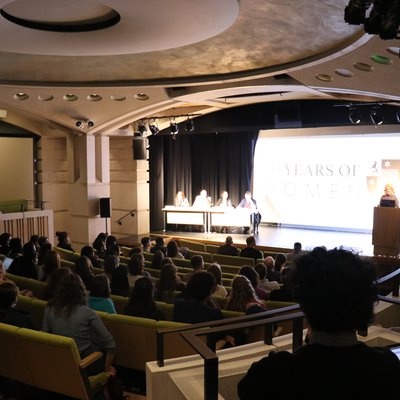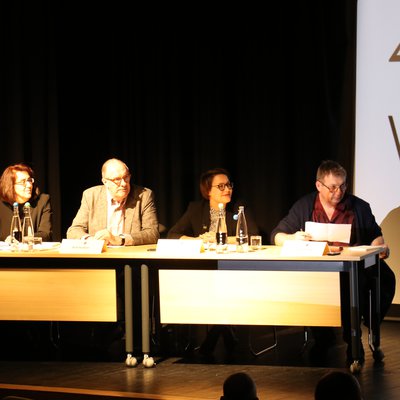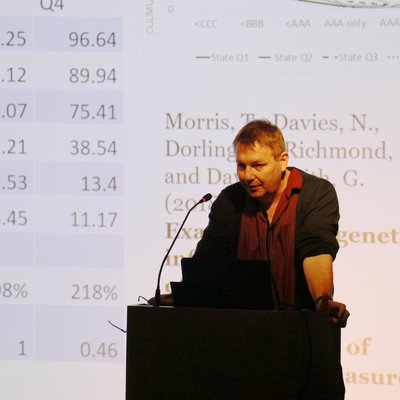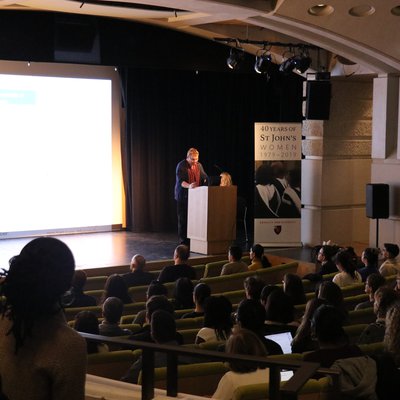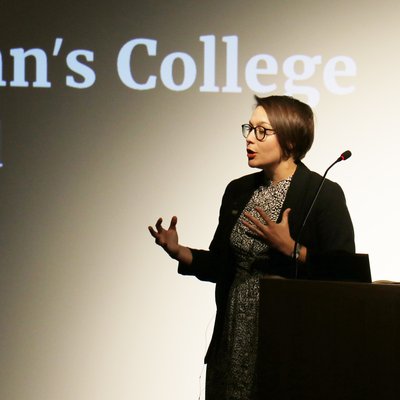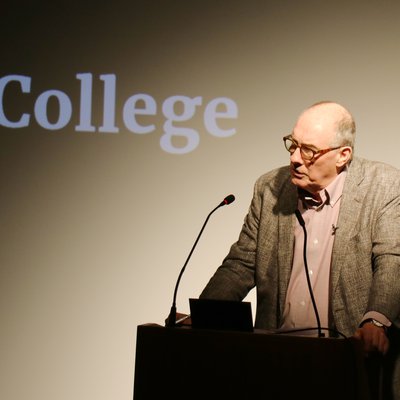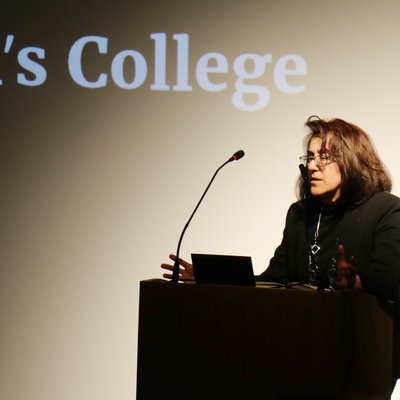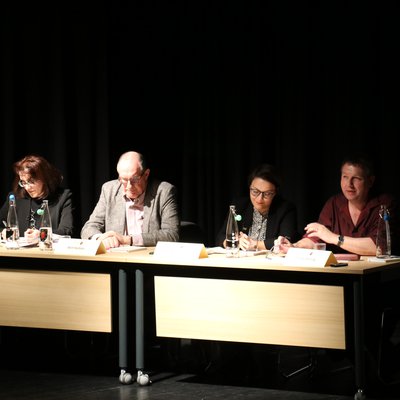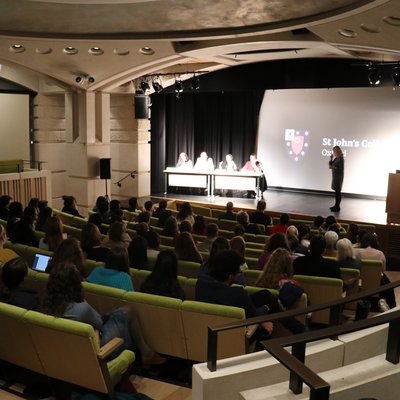40 Years of Women: Equality in Elite Higher Education
We had an expert panel of speakers to comment on some of the issues raised in this area. Chaired by Professor Kate Nation, our panellists were Danny Dorling, Anne-Marie Canning, Will Hutton and Samina Khan.
We began the discussion with each of the panellists giving a short speech on their views on equality in elite higher education. Danny Dorling spoke about the options for ‘buying’ your A-levels, through house prices or schooling, and the ways in which asking applicants to achieve 3 As at A-level perpetuates this situation. Anne-Marie Canning discussed the many ways in which inequality is prevalent within Oxford, and urged powerful institutions to combat elitism in their own community. Will Hutton mentioned the scale of the private school system in the UK, whilst going on to argue that we should look beyond Oxbridge at the economic and social problems that also exist elsewhere. Samina Khan’s speech asked questions regarding how institutions such as Oxford can become less elitist, and also reminded us that there are many factors, including the proportion of BAME students, that should be examined when looking at inequality.
Following the opening speeches, there were a number of pertinent questions raised by members of the audience. When asked at what age access initiatives should start and the extent to which it is the university’s responsibility, the panel agreed that all of us must hold some responsibility for initiating change, and that access work should start as young as possible. Anne-Marie Canning argued that universities are part of educational ecosystems, and that schools cannot shoulder all of the blame for inequalities, while Samina Khan mentioned Oxford’s focus on transitions and student journeys in order to try and combat the ‘leaky pipeline’ of talent.
Questions were also raised about access work in relation to international students from developing countries, as well as in relation to postgraduate students. The panel agreed that there is also work to do once students arrive at university – the importance of social belonging was stressed, as was talking to students about the on course experience to ensure that students are thriving once they get to university. Another area that provoked interesting discussion was the question of academic support for parents, and ways in which families and communities must also be involved. Danny Dorling commented that he viewed no education as privileged, and argued that we must do more to ensure that everyone receives a rounded, adequate education – part of which is achieved through enabling people from very different sections of society to mix at institutions such as universities.
There were wide-ranging discussions of how concepts such as advantage and privilege can be measured, particularly through our school system and admissions processes, and the final question of the evening asked: what was the most important thing to do to change things now? The answers included – find out what students and communities want; focus on children whose parents haven’t been to university, as advantage is transmitted onwards; and centralise and contextualise the admissions process.
We would like to thank all of our speakers for their valuable input to our conversation on equality in elite higher education, and we are also grateful to all of our audience members for their interesting questions and the points raised in our discussion.
